Trigger warning: sexual abuse
When I was a junior in college, my mom called with bad news.
“Heather,” she said, “Someone made allegations about [my youth pastor’s name]. She said he molested her.”
My first reaction? Complete disbelief.
Our youth pastor had inspired both love and disdain in our church. His whole tenure, various leaders and parents had disapproved. His abrupt, ungraceful exit from our church not long before hadn’t helped matters. Even I was angry at how he’d left.
But high school had been a precious time to me, and I didn’t want to throw the proverbial baby out with the bath water. I felt sure this “victim” just had an axe to grind.
“That’s ridiculous,” I said. “I was there. I would have known if he’d done something like that.”
I’d been at every leadership meeting, every mission trip and retreat and trip. I’d sat next to our youth pastor on the bus and lounged on his couch and ridden in his car alone and with others.
My mom sighed. “Heather,” she said. “It was J.”
My (mostly) best friend in high school.
And my breath stopped.
Hindsight Actually Screws Up Your Perfect Vision
Freshman year of high school J and I spent almost every waking moment together. Sleepovers, hanging out after school, going to each others’ performances and competitions.
But sophomore year—
Things changed.
Half the time I asked if she could hang out, she had something planned with our youth pastor. I was close to him too—a group of us hung out with him like he was a peer—so I felt weird complaining.
In fact, I was afraid I was being jealous and childish. I mean, he was our youth pastor.
But her growing absence hurt.
One day on the phone sophomore year of high school, I brought it up with her. I told her I was feeling jealous of how much time she spent with our pastor. How I felt like we weren’t as close as we once had been.
She got really upset.
She told me how I didn’t understand. How it was really important that she spend time with him, and that I’d just have to get used to it.
At the time, I thought she was mad because I was a terrible person, and that she wasn’t as wedded to the “best” part of best friends.
Our friendship cooled.
But now, four years later, a switch flipped.
Suddenly, I realized that the emotion in J’s voice years before had not been anger.
It had been panic.
Her abuser had been isolating her from others, and my ‘jealousy’ pitted me against him.
So in about ten seconds, I went from thinking the allegations were a bunch of crap to knowing—deep in my bones—that they were true.
And in those same ten seconds, it was like someone had dumped shit all over my fond memories of high school. Everything looked different.
Because when you know someone you trusted is capable of something awful, every good memory with that person cuts you.
Christian Naïveté
Can I be honest?
I think Christians are terribly naïve about what abuse looks like from the outside, and what’s required to confront it.
On TV and in movies, abusers are vicious, malevolent, frightening, and 100% evil. Eventually, there’s a big reveal about their terrible deeds. On cue, everyone around them gasps in recognition. The truth about their acts is clear-cut, well-understood, and traced with precision by the whistle-blower.
In reality, though, confronting abuse is a painful, confusing slog.
When Good People Side with the Abuser
Not that long ago, I talked to another woman who was in our youth group. I didn’t know her well in high school, but I really, really liked her. She was fun, smart, strong, and kind.
When we spoke, she made it very clear she didn’t believe the allegations against our former youth pastor, and that she was super pissed off with me for bringing it up. She wasn’t mean, but she was angry.
It was one of the worst phone calls of my life.
Talking to her, my blood started roaring in my ears. My hands went cold, and I started shaking.
Not because I was afraid she was right, but because I could very much understand why she thought I was poison.
Monsters would be Easier to Deal With Than Human Beings
Do you know what would make dealing with abuse easier?
It would be easier if the abusers, and the people that support them, were monsters.
It would be easier if everything were crystal-clear, if evidence was plentiful and the victims saved every last shred. It would be easier if victims never developed troubling coping strategies or mental health issues, and if we could press rewind on reality to double-check their stories.
But you know what? The past is past. Evidence, already thin on the ground, gets destroyed in desperation and shame, and often victims—not surprisingly—are negatively affected by abuse.
Even worse, being abusive doesn’t turn people into easy-to-spot monsters.
No, abusers and predators are just people.
They are someone’s relative, pastor, teacher, friend, or colleague. They often do good work in the world. They can seem charming, normal, earnest, and idealistic. They’re often successful and well-liked.
They are connected to the people around them through a web of mutual support and trust—just like any of us. Those people have their back, and support them come hell or high water.
Oh, the badness of abusive people isn’t what prevents justice from being served.
It’s their humanity, likability, and their friends.
When You Love and Trust the Abusers that Kill Your Soul
When we hear about abuse cases second-hand, we hear the horror that abusers inflict on their victims. We hear about the red flags, the warning signs, and the path that led the victims or others to discover the truth.
In other words, we get the whole picture distilled down to badness and obvious clues.
But when you’re living through abuse, the hell seems normal, and you love the people who hurt you.
A daughter of an acquaintance was recently sexually assaulted. The assailant? Her long-time best friend.
My grandfather, who molested my brother, was funny and charming. His faithful care was a big reason why my grandmother, who has dementia, was able to stay independent for so long.
My youth pastor attracted a huge, vibrant group of kids to our church. He eschewed “Christianese” for relevant, edgy content. To some extent, I still feel lucky to have formed my faith in an environment that engaged with secular culture instead of fearing it.
None of these abusers looked like obviously bad people at the time.
To confuse matters, abusers often don’t act guilty, either. I honestly think some abusers believe their version of events. They can talk about how sorry they are for the pain of their victims, without ever admitting that they are its source. They have reasonable explanations for every allegation.
Victims, on the other hand, can seem desperate, paranoid, needy, and hysterical. Believe me, being abused and then calmly told you’re crazy will turn anyone paranoid.
Abusers do not stop being related to you after you realize what they’ve done. They do not stop being your former pastor, beloved mentor, or admired friend.
You may not stop loving them even after you know what they’re capable of.
And the people that defend abusers are just people too. You can understand why they’d go to bat for their friends, relatives or pastors.
They believe in their heart of hearts they’re doing the right thing.
If you expect an abuser to look obviously guilty, if you expect to be able to be absolutely sure of the facts of abuse cases, if you are eager to weigh both sides of the story and tilt in favor of the most reasonable, well-connected person, you could very well get the wool pulled over your eyes.
Standing Up For Victims is No Cozy Mystery Plot
Abuse is filth. It is horror. It destroys families and friendships and churches.
But calling out abuse is not like solving a Miss Marple mystery. It is not clean or tidy; it does not have obvious plot points.
No, discovering abuse is like swallowing that red pill from the Matrix, and realizing the reality you’ve taken for granted is completely up for grabs. It’s realizing that people you trusted implicitly, people you love and respect, are not what they seem. It is a sure-fire recipe for paranoia.
Discovering abuse means realizing that you yourself have helped the abuser by being complicit, naive, or deceived. It means realizing that others you respect aren’t clean either.
Taking on abuse is not a made-for-TV movie. It’s wading into a pile of shit and getting used to how it smells.
Honestly, part of me doesn’t blame those who avoid diving in.
Let’s All Get Super Unreasonable
I wrote this post a few years ago in response to abuse allegations about a high-profile, progressive pastor. People I admire tremendously defended him.
I believe the victim. But believing her feels awful.
I know the only way to confront abuse is to get super unreasonable about it, but I want victims to be perfectly reasonable and unhysterical. I want to crucify the person who was capable of abuse, except I know he’s a fellow brother in Christ. I feel nervous about taking online evidence and “gossip” too seriously. But I know victims rarely have platforms; they speak up about abuse in whispers. Also, iron-clad evidence is a pipe dream.
I want to shake the people who have supported this pastor, even as I completely understand their loyalty, and envy their innocence.
Even for me, unconnected to the events personally and well-versed in what abuse looks like, it would make me feel better to just believe the pastor. It would feel safer. I wouldn’t have to question or feel angry at Christian leaders I really respect. I wouldn’t have to question–again—the foundations our church is built on. I wouldn’t have to wonder if I can ever feel safe in church.
Sometimes, doing the right thing feels horrifying. It is hard to believe Jesus when He tells us that mourning and hungering after justice brings blessings.
But I trust Him when he tells us to be wary of human power, and to align ourselves with the marginalized. I know that awful as it is to wade into muck, it feels better than numbness and powerlessness. It feels good to stomp hard against the firm earth and say no more.
It feels good to care and to speak up. It feels good to lunge after justice. It even feels good to hurt, because it means you’re alive—even as your heart is breaking.
Image credit: Joel Rickenbach


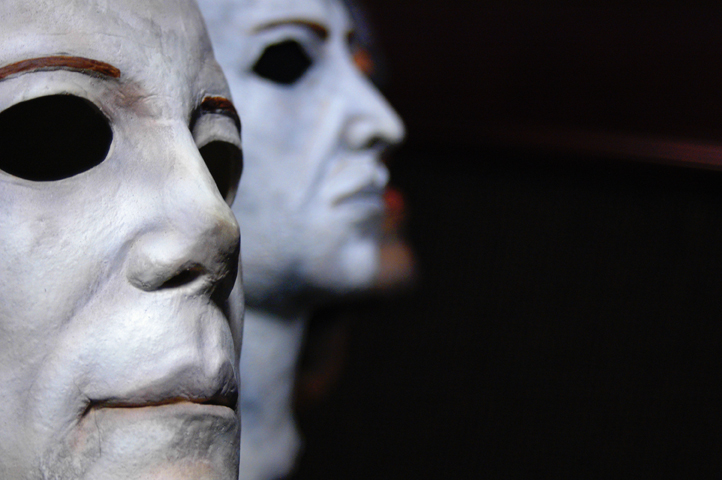



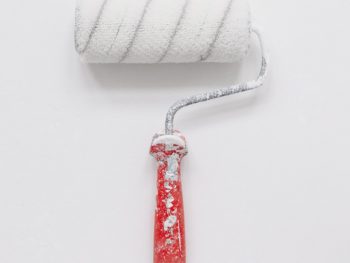

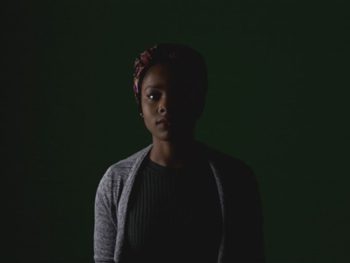

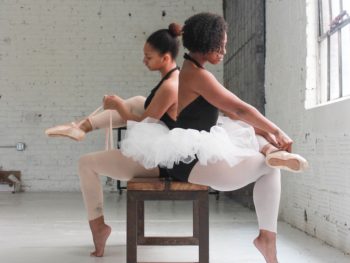



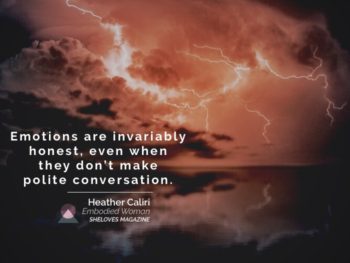
 I am trying to forgive my grandmother. Here’s why.
I am trying to forgive my grandmother. Here’s why.
Oh my goodness! Another of your posts that is resonating with me. A lot.
When my young daughter told me a snippet of what her father had done to her, I was instantly split into a person who could believe both sides of the stories. On the one hand, she could describe sex in details that you only know once you’ve had sex. And she was seven. And she was my daughter, who I will defend and support until my dying day. On the other hand, I would NEVER have married such a monster! We had divorced over a year prior, but he wasn’t as bad as THAT!
This whole thing caused me to doubt my ability to chose a man who is good and kind and who won’t hurt my children. Took years before I even wanted to think about dating.
One morning at church, we were being taught that we are all children of God. A topic I have no trouble believing at all. I had an aha moment at that time that even that former husband of mine is a child of God. And, after I got that wrapped around my head, I was able to begin to forgive him and move on. But it’s still hard. And I’m still very distrusting of people in general.
Oh, Kim, I can totally identify with your swirl of emotions when you found out about your husband’s abuse. Ugh, that sounds terrifying.
Yes, it MESSES with your ability to trust people. It really makes you feel paranoia. For me, I struggle to trust authority figures at all. I am perennially hands-on-hips, daring them to make me.
I am grateful that you are trying to forgive. I am trying to have that same attitude towards my grandfather, and towards others who have hurt me and those I love. Yes, they are children of God, full stop. And I can wish them the best even if I do not give them access to my life.
I’m in tears. This is it exactly. I’m so sorry you know enough to have this hit home so much. 🙁 <3 This is just incredible and the most gracious way I've seen this whole thing put yet, and yet you still hold everyone accountable. This is just so so so good, and gorgeous writing to boot!
Blerg, I wish I didn’t know enough either. But hey, all that crap has to be good for something, right? Thank you so much for these kind words, Caris.
Such an important post full of truth and justifiable angst. We need to continue to get the word out that sexually abusive people can look entirely cool or normal or whatever. This stereotype of monster sex offenders puts blinders on our eyes.
Oh, Mary, I’m honored to have you hear, and yes. yes yes yes. It absolutely blinds people when they’re naive about what abusers look like. You simply might not know what someone is capable of, even if you think you know them well. We MUST believe victims.
So much truth here! (And so very, very real!)
Thank you!
This is really, really resonating with me. And I’ve been wanting to say something similar for months now, but couldn’t wrap my brain around the words. I’m so grateful that you did. I just want to say “yes, yes, yes” to all of this.
Thanks, Tamara. Wow, I’m thankful to have you here, and I am also thankful that I’m not alone. I wish people could understand abuse without having to go through it, but those of us who do have to keep crying out until it is understood as well as possible.
It took me 2 decades to finally admit that my dad was a pedophile. Then it took another 5 years before I could say out loud what he did to my therapist and my sponsor along with the guilt and shame I had carried for not being able to see it and stop it. I can see many signs in retrospect (hindsight it 20/20), and yet having read the statement he wrote telling his version of what happened and knowing full well he was absolutely guilty of molesting those boys, it is still so hard to believe that he would do something like that. Baptist deacons…and daddys…just don’t do that.
But my daddy did.
And so this post totally resonates with me!
Oh, I am SO sorry. Yes, you want to believe that the people you love are not capable of horrific abuse, even as you are living proof that they are. I hate that children go through this hell, but it happens. It happens all the time, and we do not do them any favors by pretending it’s not possible.
Thank you for for this….I experienced real relief reading something that validates my experience…I haven’t been sexually abused but my experience of bullying and spiritual abuse by a church leader and my subsequent attempts to speak up met with a very similar pattern. And it would be so much easier if he and those who supported him were monsters but they are not, some of them were my closest friends. Sometimes I doubt myself, because they are so convinced that I am the bitter, unforgiving over sensitive one, it would be easier to say I was wrong. But I can’t because it wouldn’t be true. Reading this helps and is comforting as I move on but still grieve the past. Thank you xx
Oh, it’s so much easier to just assume you’re wrong and to stay in the crazy! But there’s no healing there. It takes real fortitude and bravery to stand up for yourself. People assume justice comes easily, and is obvious, and instead you have to fight like hell to get it. I am so glad this provides you relief, and validates you. My sister was reading some of the comments from people and told me that it makes her so glad to know that people are gaining help from our experience. It’s incredibly healing for me to know that my words help.
Wow. This is such an amazing post. I wish I could shout this from all the pulpits in the world. Keep prophesying…it’s needed.
Thank you, Kaitlin! I appreciate that anointing and encouragement!
Thank you for tackling a topic that, although all too common an event, is one wrapped in silence. Thank you for speaking about if frankly, but with sensitivity. Brave, dangerous woman.
Thank you, Nicole!!!
Heather, thank you speaking about such a hard topic in such a frank, but sensitive, manner. You are indeed a brave, dangerous woman.
This resonates on so many levels. I think so much of it has to do with our naivete regarding sin – how deeply it intertwines with all our lives and how it makes use of our own woundedness to propagate in darkness. I wrote a while back about realizing that I was related to my Great-Grandfather who abused my Grandmother – I had never thought about the fact that HIS blood, his DNA runs in me too. Coming to terms with our own sinfulness and potential to sin (ie leaving denial behind and withstanding the blinding glare of truth) does so much toward opening our eyes to the sin around us. Also, your description of how we want victims to be is spot on. Thank you, Heather for continuing to write about this.
So easy to cast the stone over THERE where it can’t possibly affect us, right? Yes, we’re all mixed up in the sin, and when we think we can simply point fingers without getting our hands dirty we are sorely mistaken.
This post has helped articulate a lot of feelings I’m struggling with, so thank you for that. (A warning for anyone reading: I am struggling w/ “siding with the abuser.”) It’s not church-based, but I am in a situation where I have two friends (we’ll say B and Q). B and Q were best friends until B realized the relationship was emotionally abusive and cut off contact with Q. I helped a bit, and was previously pretty good friends with B but over the past year we’ve just drifted since we’re not super compatible people (interests-wise and also her constant anger at everything is just exhausting and toxic for me). After we’d drifted, I ended up closer friends with Q who has always been pleasant to me and who has helped support me in ways others haven’t (especially with accepting my gender and sexuality).
It’s just very complicated to deal with the fact that someone can be horrible. But if they are better for you, what do you do? Does believing in their good automatically discredit the victim? How do you accept things that are so hard to accept? I am grappling with all of these questions, and my own guilt and complacency in the situation, and this writing is something I will be coming back to. Thank you.
That sounds like a tough situation, Gabi. I so appreciate your honesty in sharing it here.
I think it’s a good idea to pay attention to your own unease about the situation. You say you feel guilty and complacent, and I think those feelings are important to pay attention to. It’s hard for me to judge, not knowing what those relationships looked like, but if your own gut feels off, I’d start praying about what you need to do so you feel like you have integrity. I wonder if you see patterns with Q where the abuse with B is being repeated, or in danger of being repeated. Is there repentance, growing awareness, or a desire to get better at relationships? If not, I’d feel queasy about letting the ease of your friendship with Q cover over what is in the past. I think you’re the best judge of where that line is.
It also can be hard to stick with victims when they act less than reasonable or mature. It’s hard, though, because unreasonableness and anger is a completely understandable reaction to abuse. However, that doesn’t give abuse victims carte blanche to wreak destruction on other people. I think it’s a good idea to do a gut check with B, too. Is she/he hard to be around because of your discomfort or lack of patience? Or are they bent on staying stuck, and need more help than you can give them? I think it’s worth going the extra mile when someone has been treated badly, if only for your own peace of mind. And if they are stuck, gently recommending counseling, or doing some reflective listening where you’re not trying to advise or judge their actions might be in order. But if the friendship, mutually, has run its course, I don’t think you need to “save” anyone. Only God and the victim themself can do that.
Abusers are people, and people can be both good and bad. Q being abusive (if they are) doesn’t negate their other qualities. I’d also encourage you to examine the situation for yourself, rather than knee-jerk siding with either of them. (Especially since I’ve known people who make false accusations of abuse, and constantly being angry at everything is one of the red flags I’ve noticed.)